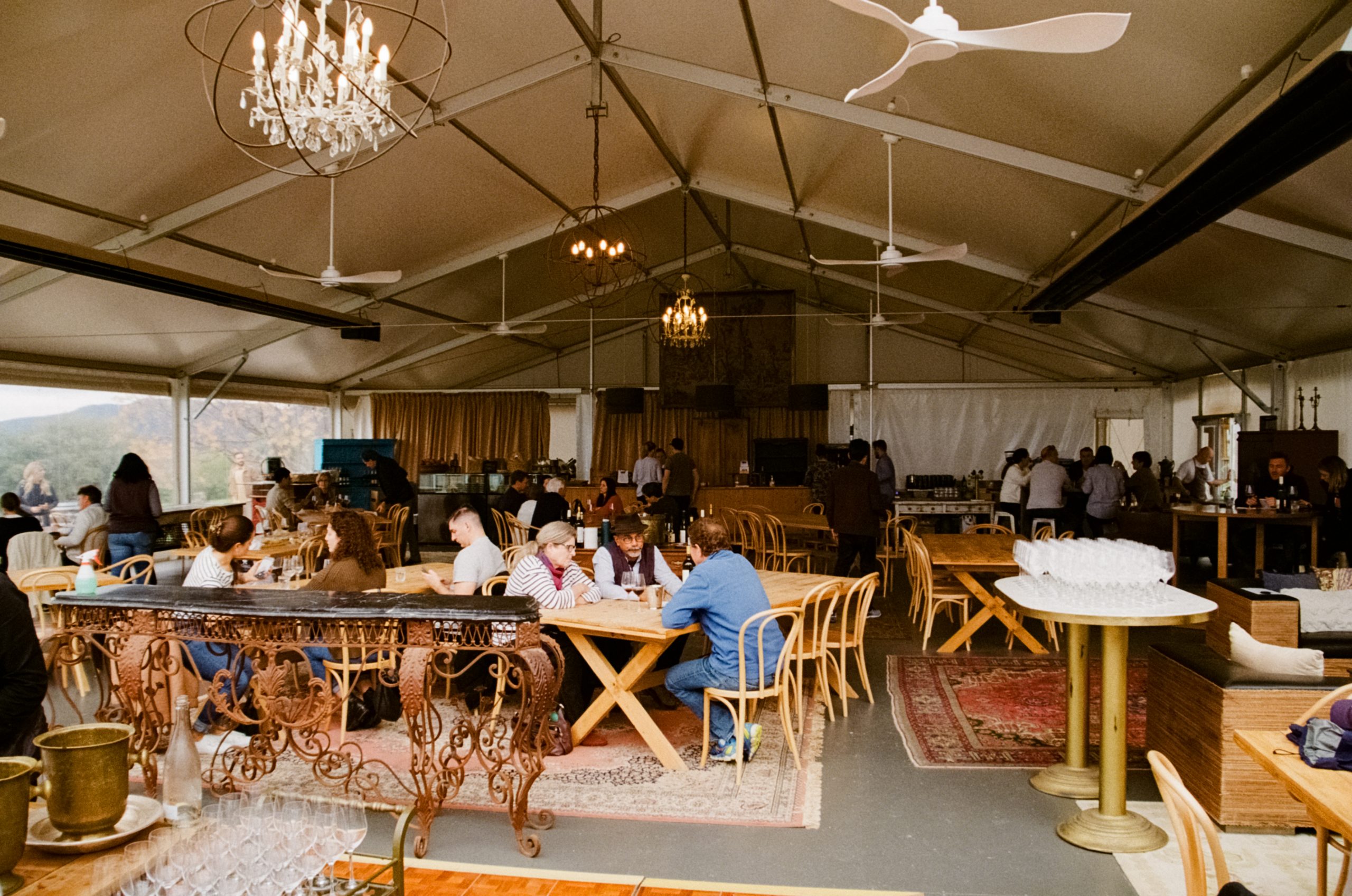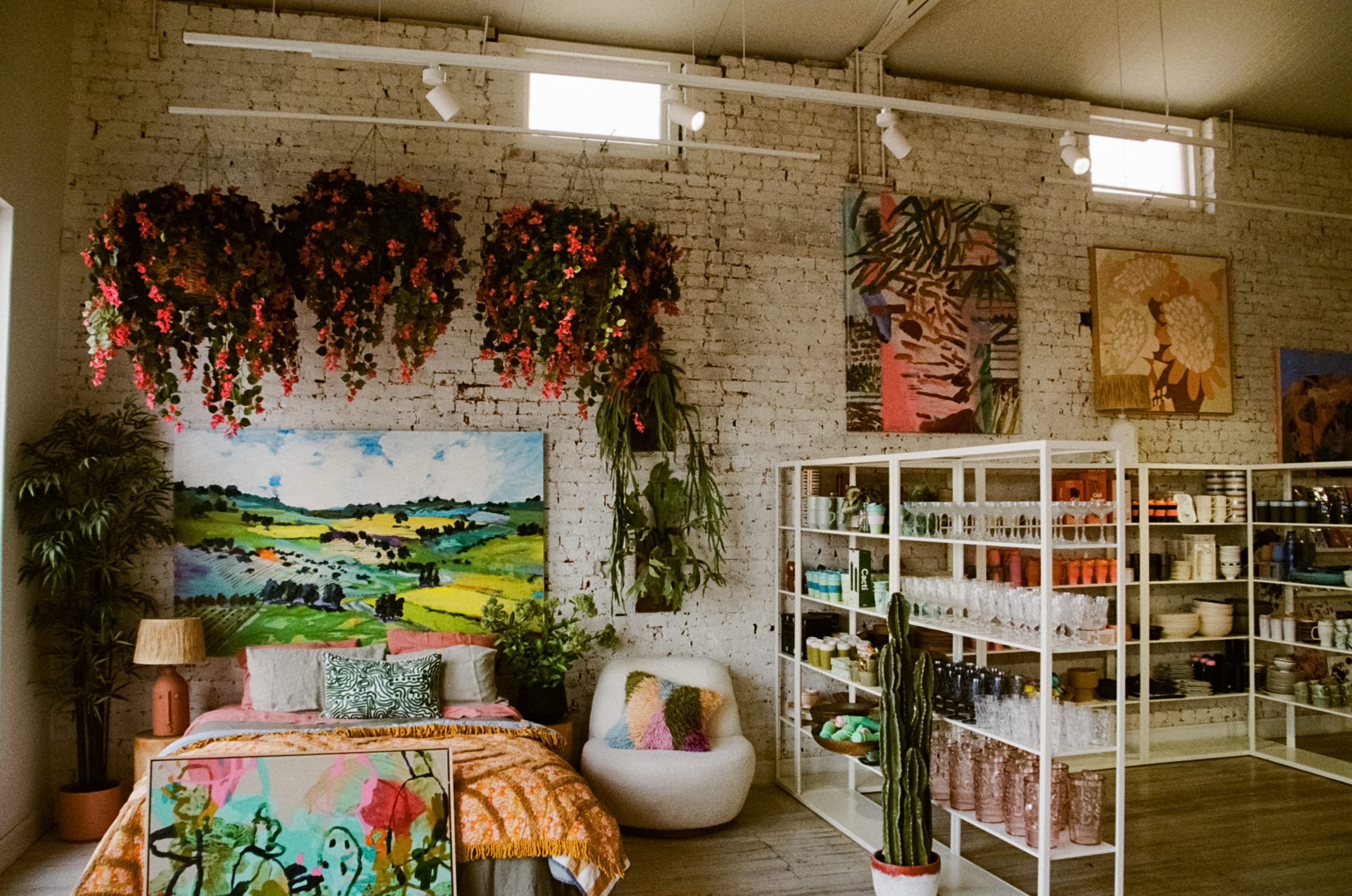Robyn Burke hadn’t planned on travelling around regional NSW much this year. The Sydneysider and retiree had three overseas trips lined up for 2020, including visits to Iran, New Zealand, Paris and Japan.
But the COVID-19 pandemic turned Ms Burke’s travel plans upside down, with an international travel ban introduced on March 18.
“We actually had planned quite a big year this year,” she said. “It’s disappointing, but that’s life.”
Like many NSW residents, Ms Burke decided to try and make the best of the situation by visiting some of the state’s regional town. In August, she and her husband Ian travelled to Orange and Mudgee in Central West NSW.
“We were just looking for somewhere to go,” she said.

“It was really nice to get out of the city. It’s a change of scenery and the people are very friendly. It’s just a pleasant experience.”
They had a fantastic time, and Ms Burke added that she enjoyed being able to support regional businesses when she would usually be travelling overseas.
“We like going out to the country towns just to sort of spread business I suppose. A lot of them are struggling so it’s nice to spend some dollars you’d probably be spending overseas.”
“We’re up 300 per cent on last year”: Business is booming in the regions
Businesses in regional centres like Orange and Mudgee are reaping the benefits of travel-starved people looking to go on a holiday within NSW.
“Tourism has become massive, especially since the end of COVID lockdown,” said Pip Brett, owner of The Sonic, an old masonic hall in Orange that is home to Jumbled – a clothing, art and homewares store.
“Since lockdown ended and the restrictions eased and people were able to move and travel out here, we’ve been so busy. All of town has been booked out ever since the lockdown ended – all the restaurants, cafés. It’s been amazing for our community the way it’s really helped everyone.”
“Our weekdays are now like our weekends. Every day is like a Saturday. We’re much busier than normal,” she said.
*Jumbled owner Pip Brett

* (35mm Film Photo: Matthew Sullivan)
Ms Brett believes that by flocking to regional towns, NSW tourists are invoking the spirit of the ‘Buy from the Bush’ movement that followed the drought and bushfires, as well as supporting businesses that are struggling due to the pandemic.
“It’s a way for people to tangibly help small business and help businesses survive. You can have a great time but help out our local community at the same time. It’s a win-win for everyone really.”
Ms Brett welcomed the increase in tourism from first-time visitors to the area during the pandemic.
“It’s a great way to explore your backyard when you previously may not have.”
Similarly, David Lowe, owner of Lowe Wines in Mudgee, said his business “is up 300 per cent on last year,” with wine tastings booked out during the week as well as on weekends.
Both Pip Brett and David Lowe have hired more staff to cope with the increased demand. They say they are busier than ever but wouldn’t have it any other way.

* David Lowe, owner of Lowe Wines in Mudgee (35mm Film Photo: Matthew Sullivan)
Up-skilling for online to match the tourism demand
A silver lining of the pandemic has been that businesses were given time to improve their online capacity for placing orders and taking bookings. This was partly out of necessity to accommodate the huge demand from NSW locals and to ensure regional businesses were getting bang for their buck during the pandemic.
“We’ve had to respond to the challenge,” said David Lowe, of the increased demand his winery was experiencing.
“It’s necessitated us upgrading our digital capacity so we can book online.”
With shopfronts closed for a few months due to the COVID lockdown, businesses were forced to come up with new ways to attract customers who couldn’t buy from them in person. Dionne Mitchell, co-owner of Curra Creek Figs & Fine Foods in Central West NSW, used the lockdown to set up an online store and boost the social media presence of her business.
“We had never had the time in the past or really the need to have an online store. But as a result of the pandemic, we were then given the time to set up an online store, which we did.”
“I’ve increased my activity on Facebook and Instagram. I’ve also undertaken a TAFE digital course in social media and marketing to improve my technical expertise in posts,” said Ms Mitchell, from her store at Mudgee farmers markets.

* Curra Creek Figs & Fine Foods co-owner Dionne Mitchell at her stall at Mudgee farmers markets (35mm Film Photo: Matthew Sullivan)
Likewise, Pip Brett used lockdown to increase Jumbled’s social media presence and adapt to taking more online orders.
“We were closed for three months and personally, I just used that time to grow our online store and our online presence, but to also tick off all the things that I’d been meaning to do but I hadn’t done yet for the business.”
Ms Brett posts daily content on Jumbled’s Instagram account, which has 124 thousand followers.
She said online orders had overtaken in-store purchases and believes this trend could well continue in the future.
“Online [orders] went bonkers during COVID, which was been amazing and it’s also shown the potential that online has for our business – the unlimited potential really.”
“I think businesses that do well are those the pivot and adjust and adapt to the business environment.”
Making domestic tourists “loyal customers”
Businesses in regional NSW are aiming to make loyal customers out of people who would ordinarily be travelling overseas if it were not for the COVID-19 pandemic.
Data obtained from Destination NSW shows that while travel around the state is down significantly on previous years, regional NSW is leading the tourism comeback.
There were 1.8 million visitors to regional NSW in July 2020 compared to only 300 thousand visitors in March this year.

* Source: National Visitor Survey, Tourism Research Australia
David Lowe said 40 to 50 per cent of his customers were first-time visitors to the Mudgee region. He emphasised that it is crucial that they enjoy their experience, so they return to regional NSW in the future, even once international borders reopen.
“It’s an opportunity for us to put out best foot forward and show them that we are an authentic destination and we need to be in the best possible shape to receive them so they become loyal customers in the future. That’s the really optimistic point about it.”
“It’s up to us to make sure they are loyal customers in the future, so they come here by choice, not because of pandemic lockdown, they do it voluntarily, not because there’s nowhere else to go,” he said.

The importance of cashing in on this increase in demand is not lost on David Lowe, after his entire grape harvest was ruined by smoke from last summer’s bushfires.
“Being the biggest state [NSW] and being a wine area three-and-a-half hours away [from Sydney], if we don’t make this work for us we’ll never be successful. It’s that important.”
Pip Brett is also hopeful that the central west’s surge in popularity can be sustained in the long-term.
“I would hate for the growth that we’ve had [to] be a waste and wasted opportunity. All those new customers that we got during lockdown that purchased and spent their hard-earned money with us. I hope that we’re able to keep them and make them loyal customers,” she said.
“Hopefully we can keep it up. Hopefully it will continue. I guess all of the smaller communities, we’ve got to think of ways to make this work.”

Meanwhile, Robyn Burke is going on another holiday soon to Shoal Bay and is already planning to return to Mudgee later this year.
“We’ve even booked to go back to Mudgee where we were because we really enjoyed that and we met some nice people. It was a very pleasant experience.”
That would be music to the ears of regional businesses and tourism operators.






